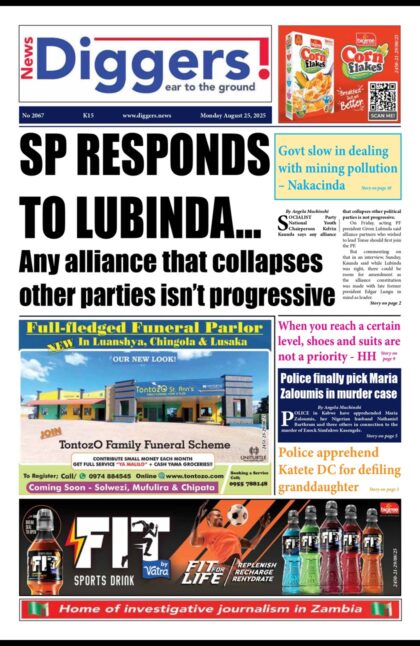Zambia’s entry into the carbon market comes with promises of environmental protection, new revenue streams, and opportunities for rural development. With forests playing a major role in capturing carbon, it makes sense that attention has turned to forested areas, many of which lie on customary land. However, as carbon credit projects begin to take shape, a crucial question arises: are rural communities really involved in shaping these projects, or they simply being asked to adapt to decisions made without them?
Across many districts, particularly in areas with significant forest cover, community members are being approached to “benefit” from carbon offset initiatives. Often, these projects are driven by external actors/developers or intermediaries who arrive with pre-designed plans and long-term contracts in hand. Chiefs are consulted and meetings are held. Yet, for the most part, communities are not involved in the design of these agreements, nor are they given the tools to negotiate on fair and informed terms. This is an existing pattern noted in districts such as Rufunsa. To many communities, this lack of involvement might not initially seem problematic. After all, they are receiving some form of benefit, however small, which they may not even realise they are fully entitled to.
This pattern is becoming alarming common. People who lived on the land for generations and the ones to bear the burden of changing how they live, farm, or harvest are rarely given a seat at the negotiating table. Instead, they are asked to suggest what percentage of benefits they would like to receive, without being told how much the project is actually worth. In many cases the value of the carbon credits being generated, traded, or sold is never disclosed. Communities are left in the dark, expected to determine their “percentage” of proceeds, but with no access to the values. This begs the question: how can any share be fair if the total is concealed.
This approach will not only bring about mistrusts but will also expose these projects to future disputes. If the communities impacted do not understand how decisions are made or how the benefits are being distributed among key players, there is a likelihood of the legitimacy of the entire process being undermined. Moreover, restrictions on the land are introduced without proper consultation, they can have serious impacts on food security, traditional livelihoods, and local resilience.
Worth noting is the acknowledgment that not all forests have been well managed at local level. Deforestation and land degradation are serious issues, often driven by poverty, lack of alternatives and weak support for sustainable practices. Of course, none of these factors can be used to justify excluding communities from the very initiatives that are meant to address them. If anything, they underscore the need to build meaningful partnerships with clear roles, responsibilities and shared outcomes.
There is a growing sense that communities are being asked to trust systems they do not understand, sign contracts they have not negotiated, and wait for benefits they cannot track. These dynamic risks eroding the very trust needed to sustain these projects over the long term. If carbon markets are to be seen as credible and legitimate, they must be built on openness and mutual accountability. Communities are not simply users of the land; they are central to its future. Their knowledge, presence and participation determine whether forest conservation efforts will succeed or fail. Leaving them out of the process especially when the stakes involve land rights, livelihoods, and long-term commitments or treating them as mere beneficiaries of a certain percentage is not just exclusionary; it is short-sighted.
In next week’s piece, I will explore how Zambia can turn this pattern of exclusion and opacity on its head by reimagining the carbon economy itself. A carbon economy where communities are not treated as passive beneficiaries, but recognized as co-owners of the land, the knowledge, and the process. An economy where land rights are respected, project terms are transparent, and participation begins at the design table.
About the Author:
Lucy P. Musonda is an Advocate of the High Court of Zambia (AHCZ). She currently serves as a Legal Researcher at the Centre for Trade Policy and Development. She holds an LLB from the University of Zambia and is currently pursuing an MBA at Heriot-Watt University, Edinburgh Business School, as well as a Master of Laws (LLM) in Taxation and Investment Law at ZCAS University.
























